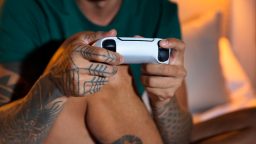As the global population ages, the demand for elderly care services continues to grow. Many seniors are living longer, and while this is a great achievement, it also brings challenges related to healthcare, mobility, and daily living. Fortunately, technology is playing an increasingly important role in improving the quality of care and making life easier for older adults. From monitoring devices to advanced healthcare solutions, technological innovations are helping seniors live healthier, safer, and more independent lives. Let’s explore the key ways in which technology is enhancing elderly care.
- Remote Monitoring and Health Tracking
One of the most significant ways technology is revolutionising elderly care is through remote monitoring and health tracking. Wearable devices, such as fitness trackers and smartwatches, are equipped with sensors that can monitor vital signs, such as heart rate, blood pressure, and oxygen levels. These devices can send real-time data to caregivers or healthcare professionals, allowing for timely interventions when necessary.
For instance, devices like the Apple Watch and Fitbit can detect irregularities like falls, arrhythmias, or changes in activity levels, alerting caregivers or emergency services. This technology helps seniors who may live alone or in remote areas receive continuous care without needing to be physically monitored around the clock. In addition, health apps that track medications, appointments, and exercise routines provide seniors with the tools they need to stay on top of their health.
- Telemedicine and Virtual Health Consultations
Telemedicine has become an essential service, particularly for elderly individuals who may have difficulty travelling to healthcare facilities. With the help of video calls, seniors can consult with their doctors or specialists from the comfort of their homes. Telemedicine allows for regular check-ups, medical advice, and even mental health support without the need to leave the house, making healthcare more accessible for seniors with mobility issues or those living in rural areas.
Additionally, virtual consultations can reduce the risk of exposure to illnesses, especially in times of public health crises like the COVID-19 pandemic. By connecting patients with healthcare professionals remotely, telemedicine offers a convenient, time-saving, and safe alternative to in-person visits.
- Smart Home Technology
Smart home devices are becoming increasingly popular in elderly care, helping seniors live more independently while ensuring their safety. Voice-activated assistants like Amazon Alexa and Google Assistant can help seniors control lights, appliances, and thermostats, as well as set reminders for medication or appointments. These devices also enable seniors to call for help simply by saying a command, which can be particularly useful for those with mobility or cognitive challenges.
In addition, smart home systems can integrate with other devices, such as security cameras, doorbell cameras, and motion sensors, allowing family members or caregivers to monitor their loved ones remotely. For example, motion sensors can detect unusual activity, such as a senior who hasn’t gotten out of bed by a certain time, and send an alert to caregivers. This helps ensure that seniors are safe and comfortable without feeling overly dependent on others.
- Robotics and Assistive Devices
Robots and assistive devices are another area where technology is making a difference in elderly care. Robotic systems, such as exoskeletons, can assist seniors with mobility challenges, helping them stand, walk, and even perform physical tasks like picking up objects. These devices offer much-needed support for those with physical limitations, allowing them to retain their independence and reduce the need for constant assistance.
Additionally, robotic companions are being developed to provide emotional support, reduce loneliness, and help with cognitive stimulation. These robots can engage in conversations, play games, and even help with basic household tasks. While they’re not a replacement for human interaction, these robots can improve the quality of life for seniors who may feel isolated or suffer from conditions like dementia.
- Artificial Intelligence (AI) in Healthcare
Artificial intelligence is transforming healthcare by enabling more precise and efficient care for seniors. AI-powered tools can analyse medical data, identify patterns, and even predict potential health issues before they become critical. For example, AI algorithms can analyse electronic health records to flag early warning signs of chronic conditions like diabetes, hypertension, or heart disease, enabling early interventions.
AI is also being used in the development of advanced diagnostic tools, such as imaging systems that can detect conditions like cancer or Alzheimer’s disease at earlier stages. These advancements are improving the accuracy of diagnoses and helping seniors receive the care they need sooner, improving their overall health outcomes.
- Social Connection and Mental Health Support
Technology is also playing an essential role in supporting the mental health of seniors. Social isolation is a common issue among the elderly, and it can lead to depression, anxiety, and cognitive decline. Virtual platforms such as video calls, social media, and online communities are helping seniors stay connected with family, friends, and their peers.
Additionally, mental health apps that provide therapeutic exercises, mindfulness techniques, or cognitive stimulation games can support seniors’ mental well-being. These tools can help prevent cognitive decline, alleviate feelings of loneliness, and promote overall mental health.
- Medication Management
Managing multiple medications can be a challenge for seniors, especially those with chronic conditions. Technology has introduced several solutions to help manage medication schedules. Smart pill dispensers and medication reminder apps ensure that seniors take the correct medication at the right time. These devices can send alerts, monitor usage, and even notify caregivers if a dose is missed.
Some smart dispensers are also designed to help prevent medication errors by sorting pills by day and time, making it easier for seniors to follow their prescribed regimen. These innovations reduce the risk of medication-related issues and improve adherence to treatment plans.
- Digital Payment Systems and Financial Management
Financial security is a significant concern for many elderly individuals. Digital payment systems and financial management apps are making it easier for seniors to manage their finances, pay bills, and track expenses. Services like online banking, mobile wallets, and bill payment reminders can help seniors avoid late payments and ensure that their financial responsibilities are managed efficiently.
In addition, some apps offer fraud detection features that can alert seniors to suspicious transactions or potential scams, providing an extra layer of security for those who may be more vulnerable to financial exploitation.
Conclusion
Technology is playing an increasingly vital role in improving elderly care, providing seniors with the tools they need to live more independently, stay healthy, and remain connected to their loved ones. From health monitoring and virtual consultations to smart home devices and AI-driven healthcare, technology is making life safer, more convenient, and more fulfilling for the elderly. As these innovations continue to evolve, we can expect even more advancements that will further enhance the quality of life for seniors, helping them age with dignity and ease.





